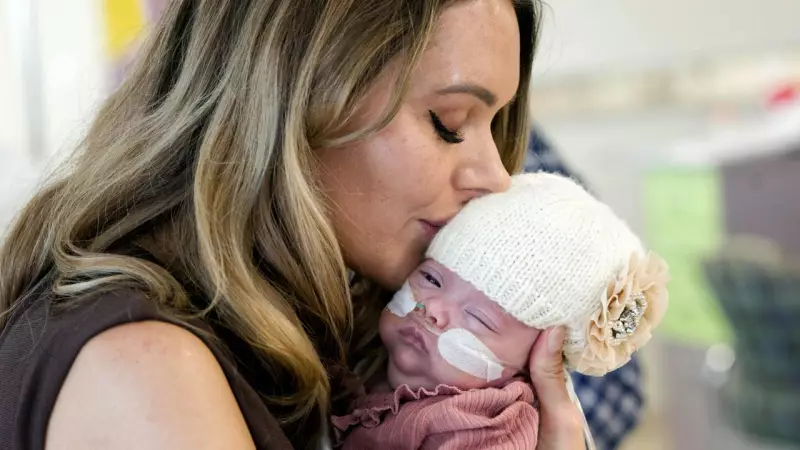
In an extraordinary medical achievement that has captured national attention, a Townsville baby has become the most premature surviving infant ever recorded worldwide. Stevie O'Reilly defied overwhelming odds when she was born at just 21 weeks and one day gestation at Townsville University Hospital, setting a new global benchmark for premature survival.
A Record-Breaking Arrival
Stevie entered the world on a day that would mark medical history, weighing a mere 410 grams - less than a standard block of butter. Her mother, Vicki O'Reilly, had experienced a completely normal pregnancy until suddenly going into premature labour. Medical professionals initially gave the family little hope, with survival statistics for babies born before 22 weeks being virtually nonexistent.
The neonatal intensive care team at Townsville University Hospital sprang into action immediately after Stevie's birth on June 9, 2023. Dr. Andrew Hooper, the director of neonatal care, acknowledged that the medical literature offered almost no guidance for cases this extreme. "We were entering uncharted territory," Dr. Hooper stated, emphasizing that standard medical protocols typically don't recommend resuscitation efforts before 22 weeks gestation.
The Long Road to Recovery
Stevie's journey through the neonatal intensive care unit (NICU) spanned an arduous 150 days, during which she faced numerous life-threatening complications. The tiny infant required mechanical ventilation to support her underdeveloped lungs and battled multiple infections that threatened her fragile existence.
Her parents, Vicki and Shaun O'Reilly, maintained a constant vigil by her bedside, celebrating every small milestone in what became a day-by-day battle for survival. "We took it hour by hour, celebrating each one she survived," Vicki recounted, describing the emotional rollercoaster of watching their daughter fight for life in the NICU.
Medical Breakthrough and Future Implications
Stevie's remarkable survival has significant implications for neonatal care standards across Australia and potentially worldwide. The medical team at Townsville University Hospital employed cutting-edge techniques and technology to support her development outside the womb, carefully managing her transition from hospital to home care.
After nearly five months in hospital, Stevie was finally discharged in November 2023, though she continues to require oxygen support at home. Her parents describe her as a "feisty" and determined baby who has already overcome challenges that most medical professionals considered insurmountable.
This case challenges established medical guidelines about viability and may prompt reevaluation of treatment protocols for extremely premature infants across Australian healthcare facilities. Stevie's story stands as a testament to both medical advancement and human resilience, offering hope to other families facing similar situations while pushing the boundaries of what modern medicine can achieve.





